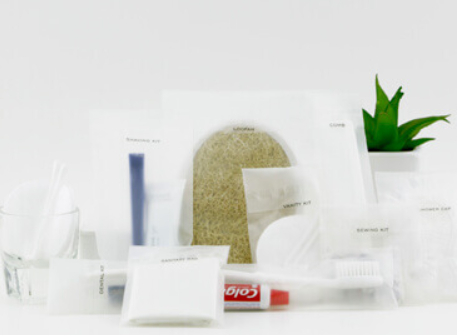When planning a hotel stay, amenities and hygiene are two pillars that dictate the quality of your experience. Modern travelers expect not only luxurious services but also high standards of cleanliness to ensure their health and well-being. This comprehensive guide explores why hotel amenities and hygiene are essential, what to look for, and how these aspects have evolved to meet today’s expectations.

1. The Significance of Hotel Amenities and Hygiene
Hotel amenities encompass a range of services and facilities provided to guests to enhance their stay, from basic conveniences like Wi-Fi to luxury offerings like spas and pools. However, without strict hygiene practices, even the most appealing amenities lose their value.
- Impact on Guest Satisfaction: High cleanliness standards foster trust and positive experiences. Guests are more likely to return or recommend a hotel that maintains clean and well-kept amenities.
- Health and Safety Assurance: Especially post-pandemic, hygiene has become non-negotiable. Hotels now emphasize not just comfort, but a safe environment for all guests.
2. Key Room Amenities and Hygiene Standards
The guest room serves as a private sanctuary during any hotel stay, making its amenities and cleanliness pivotal.
- Bed Linen and Towels: Premium hotels change bed linens and towels daily, using high-temperature laundering to eliminate pathogens.
- Bathroom Cleanliness: Attention to detail, such as sanitized bathtubs, disinfected floors, and sealed toiletries, sets top-tier hotels apart.
- Air Quality: The integration of air purifiers ensures guests breathe cleaner air, a feature increasingly found in high-end accommodations.
3. Dining Services and Food Hygiene
Dining is an integral part of hotel amenities, with hygiene playing a crucial role in food safety.
- Sanitized Dining Areas: Regular cleaning and sanitization of tables, chairs, and common surfaces minimize risks.
- Certified Food Handling: Hotels with certifications in food safety practices signal adherence to stringent protocols. Kitchens must follow guidelines that prevent cross-contamination and maintain clean food preparation areas.
- Room Service Protocols: Contactless delivery, tamper-proof packaging, and disposable dining utensils contribute to safer room service experiences.
4. Hygiene in Wellness and Recreation Amenities
Gyms, pools, and spas are major draws for guests seeking relaxation or fitness during their stay, yet these areas also present unique challenges for hygiene.
- Sanitation Stations: Gyms should be equipped with disinfectant wipes and hand sanitizers, enabling guests to clean equipment before and after use.
- Regular Cleaning of Spas: Hotels with spas must prioritize sterilizing surfaces and tools between each use, ensuring that treatments like massages and facials are both safe and rejuvenating.
- Pool Maintenance: Maintaining the correct balance of chemicals in pool water prevents bacterial growth and ensures guest safety.

5. Hygiene Protocols in Common Areas
High-traffic areas, such as lobbies, elevators, and conference rooms, are where meticulous hygiene measures become evident.
- Frequent Disinfection: These areas must be sanitized multiple times a day, focusing on surfaces like elevator buttons, door handles, and reception desks.
- Hand Sanitizer Accessibility: Placing sanitizing stations throughout the hotel signals a commitment to maintaining cleanliness and provides guests with added peace of mind.
- Social Distancing Markers: Hotels often implement space management practices to encourage safe distances between guests in common areas.
6. Technological Innovations Enhancing Hygiene
The hospitality industry has seen significant advancements in technology that support hygiene without sacrificing comfort.
- Touchless Solutions: Automated check-in systems, voice-activated room controls, and contactless payment reduce the need for physical interaction.
- Digital Room Keys: Mobile keys accessed via smartphones help minimize contact between staff and guests.
- UV-C Light Sanitization: Hotels are increasingly using UV-C technology to disinfect rooms and common areas, which effectively neutralizes viruses and bacteria.
7. Staff Training and Hygiene Compliance
A hotel’s commitment to hygiene is mirrored by the training and expertise of its staff.
- Comprehensive Training Programs: Staff should undergo regular training on proper cleaning techniques and the use of personal protective equipment (PPE).
- Visible Cleanliness Practices: Staff cleaning public areas regularly reinforces the hotel’s hygiene standards.
- Guest Assurance Policies: Providing guests with information on cleaning schedules and procedures adds transparency and trust.
8. Hygiene Certifications and Accreditation
When choosing a hotel, looking for hygiene certifications can provide peace of mind.
- ISO 22000 Certification: This certification demonstrates a hotel’s commitment to food safety management systems.
- Local Health Department Approvals: Hotels should meet or exceed local health and safety regulations, which can often be verified through their online profiles or on-site information.
- Green Certifications: Hotels that adopt sustainable practices, like using eco-friendly cleaning products, maintain both environmental and hygiene standards.
9. Adapting to Post-Pandemic Hygiene Expectations
The COVID-19 pandemic reshaped the way hotels approach hygiene, pushing them to adopt enhanced cleaning protocols.
- Daily Deep Cleaning: Increased cleaning frequency in rooms and public areas is now standard practice.
- Protective Barriers: Plexiglass shields at reception desks and between tables in dining areas offer extra protection.
- Enhanced Room Sanitization: Use of electrostatic sprayers or hospital-grade disinfectants for high-touch surfaces like remote controls and switches.
10. Guest Tips for Evaluating Hotel Hygiene
Guests can take a few proactive steps to ensure their selected hotel meets high hygiene standards:
- Read Reviews: Websites like TripAdvisor and Booking.com feature guest comments that often highlight cleanliness.
- Look for Seals of Cleanliness: Many hotels now display badges indicating their adherence to top cleaning protocols.
- Direct Inquiries: Don’t hesitate to contact the hotel for specific details on their hygiene practices and amenities.

Conclusion
Hotel amenities and hygiene are more than just conveniences; they are essential elements that ensure comfort, safety, and peace of mind during your stay. From sanitized linens and dining areas to advanced technological solutions, understanding what to expect and what to look for can make all the difference. By prioritizing hygiene, hotels not only foster trust but create environments where guests feel truly taken care of.
